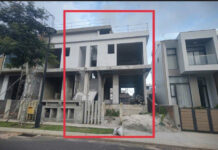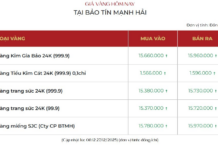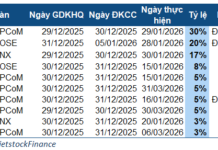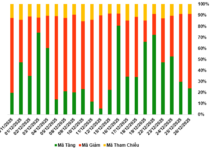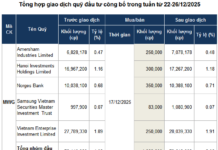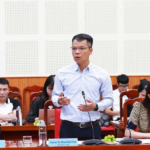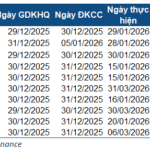Vietnam’s Ministry of Construction Supports Tax on Real Estate Transfer Profits
In its Q2 report on housing and the real estate market, the Ministry of Construction proposed a series of key solutions, including real estate taxation.
The Ministry supports the Finance Ministry’s proposal to impose a personal income tax on the difference between multiple land transaction prices. They believe this will “prevent speculation and real estate price inflation.”
Previously, the Finance Ministry suggested a 20% personal income tax on the difference between purchase and sale prices of real estate for each transfer in the draft Law on Personal Income Tax (amended).
If the purchase price or related costs cannot be determined, the tax will be calculated on the selling price with a progressive tax rate based on the holding period: 10% for less than two years, 6% for two to five years, 4% for five to ten years, and 2% for over ten years.
 Mixed reactions to the proposed real estate transfer tax.
|
Additionally, the Ministry of Construction recommended studying a policy to tax the difference between the calculated land use fee and the selling price of products in projects. They also suggested imposing taxes on unused houses and land to curb asset hoarding, reduce waste, and prevent market distortion.
What do experts think?
In an interview, Ms. Giang Huynh, Director of Research and Consultancy Services at Savills Ho Chi Minh City, stated that the goals of the policy should be clearly defined before analyzing its impact. Comparing the current 2% tax on transfer value and the proposed 20% tax on actual profits, she identified three potential goals. The first is to increase state budget revenue. The second is to create tax fairness, as those with higher profits will pay higher taxes. Looking ahead, the third goal is to use the policy as a market regulation tool, curbing real estate speculation and promoting transparent transactions. These are positive goals that could benefit the market in the long run.
However, Ms. Huynh pointed out that assessing the policy’s practicality and real-world impact remains a significant question. Practical experience shows that a prerequisite for implementation is a comprehensive market database to determine purchase and sale prices and related costs, which is currently lacking. She believes that applying these policies is still challenging.
Ms. Huynh emphasized that implementing the policy without the necessary infrastructure would have two significant impacts. First, it could affect market liquidity, slowing down transactions and causing tax collection bottlenecks and disputes. Second, the new tax could lead to higher tax burdens, as sellers aim to maintain minimum profits, shifting the burden to buyers and driving up housing prices.
Therefore, to effectively impose the tax, two factors are crucial: infrastructure and a roadmap. Specifically, the infrastructure should include a comprehensive and continuously updated database with purchase/actual prices, investment costs, and related factors. The roadmap should involve evaluating implementation effectiveness and piloting the policy in areas with robust data systems. After two to six months, the process can be fine-tuned and loopholes addressed.
Mr. Nguyen Van Dinh, Chairman of the Vietnam Real Estate Brokers Association, shared that the association held a meeting with members on July 28 to discuss the draft Law on Personal Income Tax regarding real estate transfers. According to Mr. Dinh, the members agreed that Vietnam’s real estate market has just emerged from a prolonged challenging period and is entering a new growth cycle. Therefore, any policy changes should be carefully considered to avoid adding pressure and negatively affecting the market’s recovery and long-term development.
Mr. Dinh also cautioned that if the 20% tax on transfer profits is implemented, markets with high real housing demand might see continued price increases as sellers factor the tax into their asking prices. Currently, most transactions are driven by investment demand. A decline in investment demand could lead to a decrease in overall transaction volume.
“I believe that a specific effective date should be stipulated when the new law is promulgated to give individuals, businesses, and market entities time to prepare and adapt,” Mr. Dinh suggested. “The authorities should also define a list of deductible expenses when calculating taxable income from real estate transfers. Additionally, we should consider whether to set maximum limits for each deductible expense, such as a cap on the deductible brokerage fee as a percentage of the selling price or including renovation and repair costs.”
Ngoc Mai
– 06:08 30/07/2025
Do Bonuses for the Vietnamese National Football Team Have to Pay Personal Income Tax?
At a press conference held by the Ministry of Finance on January 7, Deputy Director of the General Department of Taxation, Mai Son, announced that the monetary bonuses and commemorative medals awarded to the Vietnamese football players following their victory in the 2024 ASEAN Cup will be exempt from personal income tax.
What Do We Learn from the Record State Budget Collection?
This year, for the first time, the budget revenue reached an impressive figure of over 1.7 quadrillion VND, surpassing the 2023 figure by 13.7%. Despite this remarkable achievement, there are still underlying issues with the budget revenue, including an outdated personal income tax policy that poses the risk of tax losses.
“A Taxing Matter: Curbing Property Speculation with Time-Based Levies”
The Ministry of Finance is proposing to study and implement a tax on capital gains from real estate transfers. This progressive initiative aims to revolutionize the nation’s tax landscape by introducing a nuanced approach to taxation, one that is sensitive to the varying financial circumstances of citizens. By taking into account the duration of property ownership, this proposed tax adjustment has the potential to foster a more equitable society, where the tax burden is distributed in a manner that accounts for the diverse economic realities of the populace.
The Taxman Cometh: The Second Home Edition
The Ministry of Finance proposes studying the implementation of taxation on personal income from real estate transfers based on holding periods, drawing from the experiences of several countries. This progressive approach aims to create a fair and efficient tax system, ensuring that individuals contribute proportionally to their gains from real estate investments.







